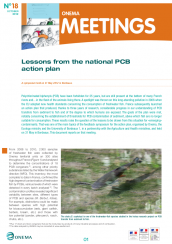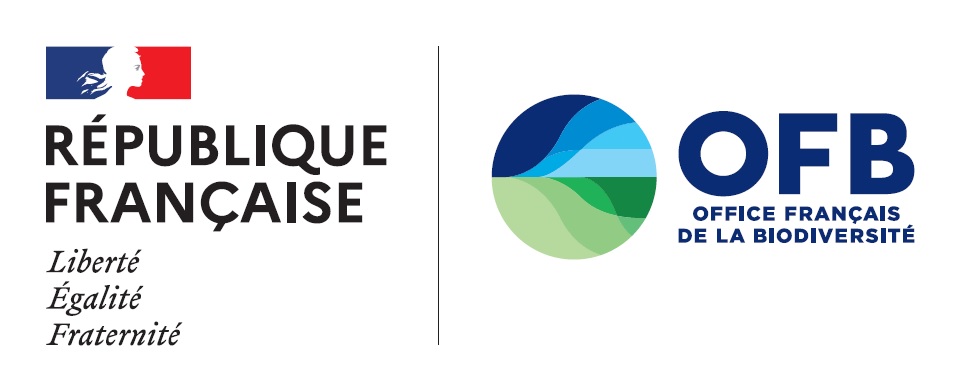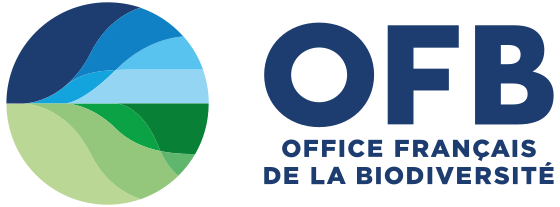Meetings
The aim is to highlight the seminars by presenting the main lines of these seminars in the form of a short summary illustrated with examples and testimonials. They help to disseminate information on the major issues of tomorrow, on the preservation and restoration of biodiversity, and in particular for achieving the goal of achieving good water status imposed by European and national policies.
A hardcopy of each document may be requested as long as stocks last. Please justify your request when writing to veronique.barre [a] afbiodiversite.fr
The importance of the science-policy interface for water and climate - n°30 |
The purpose of the event, a forerunner to the 7th World water forum and the Paris-Climat 2015 meeting (COP21), was to facilitate discussions between scientists and elected officials on the topic of water and climate change in view of jointly laying the groundwork for future improvements in the science-policy interface. These discussions are essential in order to transform scientific knowledge into actual water planning and management policy.
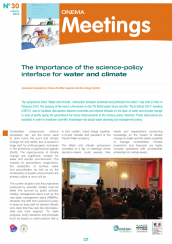
A national specimen bank for continental aquatic environments? - n°29 |
Several of the leading international experts on environmental specimen banks (ESB) met for 2 days of discussions that highlighted the value of these tools in meeting the challenges raised by pollution management and biodiversity conservation. The idea of creating an ESB for continental aquatic environments in France was floated.
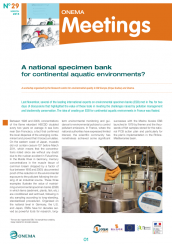
Overseas territories, the WFD and bioassessment - n°28 |
Over the past 5 years, the development of bioassessment tools suited to the overseas territories has made rapid progress. This symposium was an occasion to report on the progress achieved and to assess the work that must still be undertaken for the upcoming management cycles of the Water framework directive (WFD). A review.
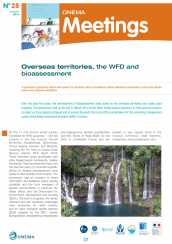
Monitoring programmes: WFD requirements, their implementation and use of the results - n°27 |
The purpose of the workshop was to facilitate discussions between European river basins on monitoring of water and aquatic environments, with the European commission and the European environment agency on hand, and to enhance the common implementation strategy for the WFD. It was an occasion to discuss monitoring results and the impact of monitoring on implementation of management plans and programmes of measures in 3 main fields, namely the purposes of the monitoring programmes, stakeholder organisation and roles, and monitoring strategies.
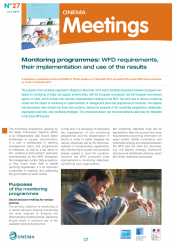
Local governments are frequently confronted with the problem of managing agricultural nonpoint-source pollution. This type of pollution is one of the main causes of the degradation of water bodies in France and Europe. How can its management be improved and its impacts reduced? What are the tools and methods now available to water managers to effectively counter the pollution?
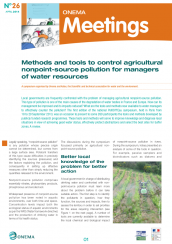
Bringing wetland research in line with operational needs - n°25 |
The objective of the meeting, based on an analysis of wetland research over the past 10 years, was to set guidelines for scientific policy on wetlands better suited to the needs expressed in the field. This document reports on that meeting.
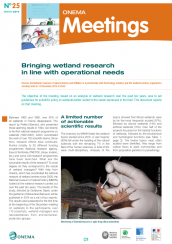
Reducing chemical contamination of aquatic environments: five years of progress and results - n°23 |
The national symposium on monitoring and reducing chemical contamination of aquatic environments brought together water managers, stakeholders and scientists. An array of results and techniques, produced over 5 years of intensive efforts by BRGM, Ifremer, Ineris and Irstea, were presented.
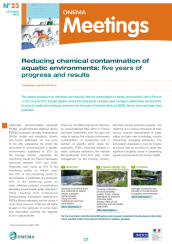
Invasive exotic crayfish: present situation and management approaches - n°22 |
Out of the 9 crayfish species inventoried in France in 2013, 6 were introduced during the XXth century. 3 of them are well-known invasive. In response to an increasing need for more knowledge and solutions, an unprecedented research effort has been led in Brière since 2010. All these studies, along with others led elsewhere in France, were presented during the first French meeting on invasive exotic crayfish.
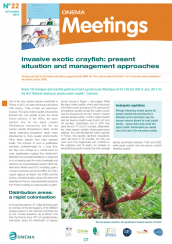
Diagnosing and restoring aquatic biodiversity - n°21 |
The national symposium on The outlook for managing aquatic biodiversity in rivers and lakes was an occasion to report on some 30 partnership-research projects in the field of aquatic biodiversity. Following a status report on biodiversity in aquatic environments in France, the meeting went on to present a range of innovative tools for monitoring and restoring biodiversity in a context of global climate change.
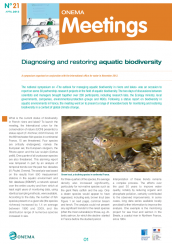
Lessons from the national PCB action plan - n°18 |
France launched a PCB action plan that produced considerable progress in our understanding of PCB transfers from sediment to fish and of the degree to which humans are exposed. The goals of the plan were met, notably concerning the establishment of thresholds for PCB contamination of sediment, above which fish are no longer suitable for consumption. These results raise the question of the lessons to be drawn from this situation for «emerging» contaminants. That was one of the main topics of the feedback symposium for the action plan.
